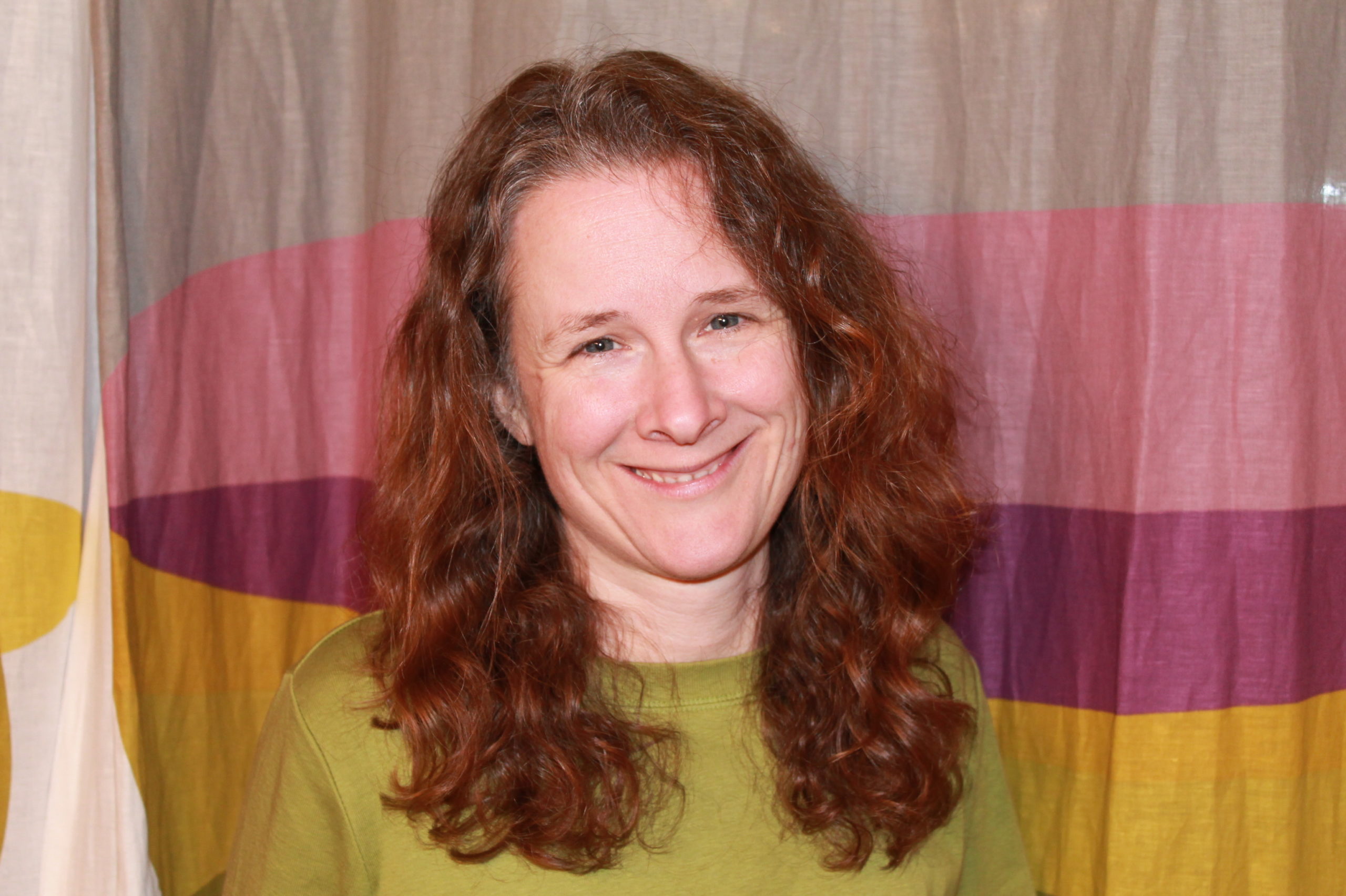 Rev. Joanna Harader serves as pastor of Peace Mennonite Church in Lawrence, Kansas. In addition to all of the pastor stuff she does, Joanna also enjoys writing, reading, card-making, and playing board games. You can read more of her writing at SpaciousFaith.com.
Rev. Joanna Harader serves as pastor of Peace Mennonite Church in Lawrence, Kansas. In addition to all of the pastor stuff she does, Joanna also enjoys writing, reading, card-making, and playing board games. You can read more of her writing at SpaciousFaith.com.
Several weeks ago I was at a church convention — the 40th anniversary celebration of Brethren Mennonite Council. It was much smaller than a biennial Mennonite Church USA convention, but it still had all the great church conference elements: old friends, new friends, worship, laughter and lots of amazing singing.
After Friday night’s opening session, I gave into a compulsion of mine and checked my phone. I’ll admit that when I haven’t checked it for awhile, I feel a bit of rising panic. Just maybe there is something important I’ve missed, some crisis I need to know about RIGHT AWAY.
There never is, of course. Except this Friday night there was. A message had come to my phone at 9:18 p.m. — about 20 minutes before I checked it: “Dear friends. John passed peacefully at 8:30.”
I knew it was coming. John had been diagnosed with ALS several years ago. He had outlived all of the doctors’ predictions already. And just two days before he died Sue had asked me and two other people from church to come to the house and pray with them because John’s body was failing fast. That Wednesday night I had taken him a little mechanical toy I bought for his collection — a crazy dancing guy wearing an “I love you” sash. We had laughed about that, and about all of the water I poured on him when I baptized him eight years ago. He says it was because he had so many sins to wash away, but the truth is John was last in line and there was a lot of water left in the pitcher.
I knew that John would die soon. But I didn’t expect him to die that night while I was hundreds of miles away at a church conference. I didn’t expect to paste on a neutral face and force my way through the crowd and up to my hotel room where I sank to the floor and sobbed alone. I didn’t expect that the only pastoral care I would be able to offer Sue would be an unanswered phone call and an inadequate text message: “I will be praying for you.”
Love is a verb. When we love people, we do things for them. We especially do things for them when they are deeply wounded, broken, grieving. I wanted to do something for Sue. I wanted to be there, to hug her, to feed her, to do the good, Mennonite, love is a verb thing. But I couldn’t. All I could do was call and pray and wait.
And in not being able to do something, I realized an important truth about love as a verb — love can accomplish things even when we can’t. Our love and God’s love can do things in people’s lives beyond whatever it is we do or don’t do. The love I shared with John and Sue over years of worship and prayers and visits and laughter was present with them, ministering to them, even when I was miles away. And, of course, God’s love was with them as well.
Another thing I learned about love as a verb: I don’t always have to be the one doing love. Sometimes I can simply receive love. My friend Theda stepped out of the festivities to pray with me and for me and for Sue. A couple of people who knew what had happened checked in with me. Others at the gathering who had no idea what had happened were nevertheless kind. And that night, in the midst of my grief, I gathered with friends around a coffee table in someone’s hotel suite. We had wine and water and chocolate and goldfish crackers, and I laughed harder than I had in a long time.
Love is, indeed, a verb. Sometimes that means we must do things to live out our love. And sometimes it means that the love we have given and received will surround us and hold us when we are beyond doing.


